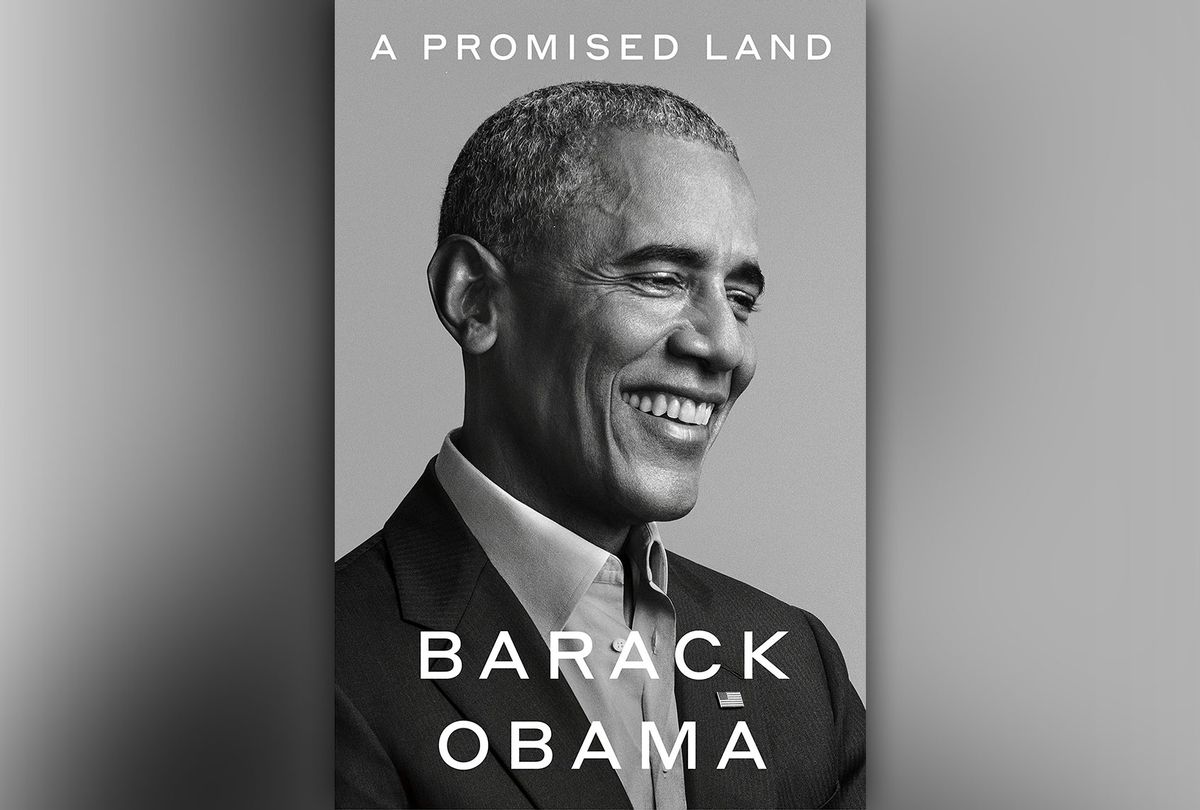Former President Barack Obama's post-presidency memoir directly confronts the tide of racism that swept President Donald Trump into office, casting his successor's candidacy as a salve for millions of Americans who were "spooked" by a Black man in the White House.
"It was as if my very presence in the White House had triggered a deep-seated panic, a sense that the natural order had been disrupted," Obama writes in the new book. "Which is exactly what Donald Trump understood when he started peddling assertions that I had not been born in the United States and was thus an illegitimate president. For millions of Americans spooked by a Black man in the White House, he promised an elixir for their racial anxiety."
In the first volume of the memoir, which is titled "A Promised Land" and scheduled for release on Nov. 17, Obama reflects on his youth, political rise, 2008 presidential campaign and first few years in office. The 768-page tome culminates in the raid on Osama Bin Laden's Pakistan compound, according to a copy of the book obtained by CNN. (A release date for the second volume has not been set.)
CNN reports that Obama's "most thoughtful examination" is his condemnation of the Republican Party's evolution during his presidency — an open embrace of the right wing's darkest qualities in response to his election, beginning with 2008 Republican nominee John McCain's decision to share his ticket with former Alaska governor Sarah Palin.
"Through Palin, it seemed as if the dark spirits that had long been lurking on the edges of the modern Republican Party — xenophobia, anti intellectualism, paranoid conspiracy theories, an antipathy toward Black and brown folks — were finding their way to center stage," Obama writes.
The former president adds that he "wonder(s) sometimes" about whether McCain would have picked Palin if he knew that "her spectacular rise and her validation as a candidate would provide a template for future politicians, shifting his party's center and the country's politics overall in a direction he abhorred."
Obama ultimately lands on McCain's side: "I'd like to think that given the chance to do it over again, he might have chosen differently. I believe he really did put his country first."
But the former president does not spare Trump, beginning with his eventual successor's propagation of the racist lie that Obama was not born in the U.S.
Obama's White House first viewed birtherism as something of a joke, according to the former president. However, Obama soon saw the racist movement in a larger context — a part of the Republican Party's appeal to white voters' "visceral" reaction to the first Black president. That view "had migrated from the fringe of GOP politics to the center an emotional, almost visceral, reaction to my presidency, distinct from any differences in policy or ideology," Obama writes.
In Obama's telling, Trump did not exist as an aberration even then. Instead, he fit into the mainstream Republican Party's overall devaluation of truth.
"In that sense, there wasn't much difference between Trump and [former House Speaker John] Boehner or [Senate Majority Leader] McConnell. They, too, understood that it didn't matter whether what they said was true," Obama writes. "In fact, the only difference between Trump's style of politics and theirs was Trump's lack of inhibition."
"We're better than this," Obama told his aides after he eventually released his long-form birth certificate against their advice.
The former president also writes about his relationship with then-Vice President Joe Biden. Obama says he picked Biden, now president-elect, in part because he would be "more than ready to serve as president if something happened to me."
"What mattered most, though, was what my gut told me — that Joe was decent, honest, and loyal. I believed that he cared about ordinary people, and that when things got tough, I could trust him," Obama writes. "I wouldn't be disappointed."
Obama also reflects positively on the transition from former President George W. Bush's administration, saying that "I promised myself that when the time came, I would treat my successor the same way."
That successor, of course, was Trump, a figure who rode to the White House on a wave of politicized racial resentment, which began to rise during Obama's first term.
At one point, Obama recalls how his wife, Michelle Obama, reacted when she "caught a glimpse" on TV of a rally promoting the hyper-conservative Tea Party movement.
"She seized the remote and turned off the set, her expression hovering somewhere between rage and resignation," Obama writes. "'It's a trip, isn't it?' she said . . . 'That they're scared of you. Scared of us.'"

Shares